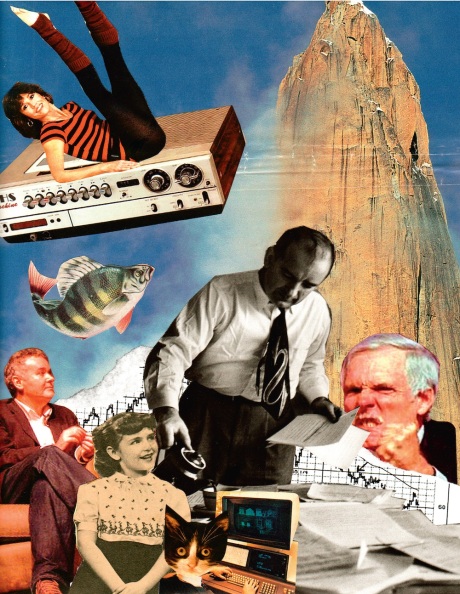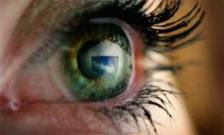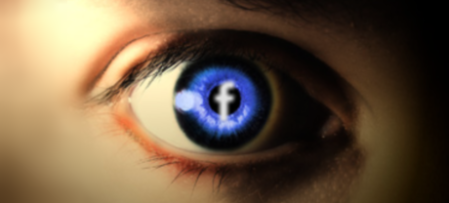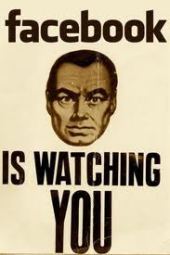
I’ve just been alerted to an interesting article in Psychology Today by Michael Bader (a psychologist from San Francisco), hypothesizing that right-wing attitudes to health care reform may come from a deep-seated fear of dependency. There’s some interesting ideas in here, whether you agree with him or not, it certainly gets you thinking. Often people cite the pursuit of freedom as their primary reason for being against Government-run healthcare. But surely this is irrational? If you are desperately sick and can’t afford to pay to see a doctor you are far from ‘free’ in any sense. In these type of cases Obamacare would increase the level of people’s freedoms. Why are people opposing policy that will ultimately benefit them? Is it that they don’t want to accept a societal responsibility to help others who can’t help themselves? Surely freedom and responsibility are two sides of the same coin, and one without the other is an illusion? Bader tries to plumb the deep psychological depths of these questions and comes up with some interesting suggestions.
Read it here
The Red Eye Portal
- Fight the power and bring the noise
Pages
Syndicate
Meta

Are Right Wingers Scared of Dependency?
Why the VICE generation are apocalyptic and frightened
Vice Magazine’s Alex Miller interviews one of Red Eye’s favourite filmmakers, Adam Curtis, in this new piece called Looking Beneath the Waves. In the article Curtis shares some of his latest theories on why the news (in its current guise) is unable to shed any light on the real reasons for the global financial meltdown, why economics is a failed pseudo-science, why a whole generation has grown up to be supremely cynical and paranoid, and the frightening reality of a world in which no-one really knows what’s happening, including both the journalists and politicians that pretend to have all the answers.
December 11, 2012
Categories: Documentary, Economics, Environment, History, Ideas, News, Politics, Psychology . Tags: adam curtis, Interview, vice magazine . Author: The Red Eye Portal . Comments: Leave a comment
Earning a Living is Bollocks
July 18, 2012
Categories: Ideas, Meme, Philosophy, Politics, Psychology, Science, Sociology . Tags: capitalism, evolution, quotes, vocation, work . Author: The Red Eye Portal . Comments: Leave a comment
Spread your cheeks

Naomi Wolf writes in The Guardian about how the US State is increasingly using sexual humiliation to subjugate it’s citizens.
Is the Occupy movement and other domestic unrest scaring the powers-that-be into ever more draconian security policies?
Why have security forces been given the power to strip-search US citizens at random? Is this encroaching fascism the conservative’s inevitable response to an increasingly anarchistic (even revolutionary?) mindset in America’s youth?
Whatever the answer is to any of these questions, this is scary shit.
April 6, 2012
Categories: News, Policing, Politics, Psychology, Repression, Sociology, Technology . . Author: The Red Eye Portal . Comments: 1 Comment
Right Wing Views Make The Less Intelligent Feel ‘Safe’

Right-wingers tend to be less intelligent than left-wingers, and people with low childhood intelligence tend to grow up to have racist and anti-gay views, says a controversial new study.
Conservative politics work almost as a ‘gateway’ into prejudice against others, say the Canadian academics.
The paper analysed large UK studies which compared childhood intelligence with political views in adulthood across more than 15,000 people.
The authors claim that people with low intelligence gravitate towards right-wing views because they make them feel safe.
Read more here in The Daily Mail (!)
February 3, 2012
Categories: Politics, Psychology, Science, Sociology . Tags: Morons, Right . Author: The Red Eye Portal . Comments: 5 Comments
The Facebook Illusion
A few months ago, I made the decision to leave the popular social networking site. I gave no explanation, or warning to my facebook ‘friends’, I just deleted my profile. It was quite a spontaneous decision, but left me with an immediate feeling of relief. Since then, I have contemplated about why I made that snap choice, and why I have a continuing feeling it was a very wise decision. This has led me to thinking about the very concept of facebook, the purpose intended by its designers and its global domination. It has brought me to consider the personal, social, and psychological effects it was having on me, my friends and the world at large. The more deeply I unravel its framework and the social processes it has unleashed; the more unnerved I find myself. The more I see people glued to their screens for a facebook fix; the more concern I have for people’s mental health and general social evolution.
Yes, yes… here harps on the technophobe hippy, full of conspiracy and with a failure to see how facebook is really connecting people. Actually no; I was as hooked to the website as everyone else for many years. I used it to keep in touch with old friends, promote music and community events, encourage political debate and thought, share photos of fun memories with friends. What I failed to see is the illusion facebook creates, and the damage it was doing to my own mind and my relationships with others, until a few online events and arguments caused me to open my eyes.
I could probably write a book on facebook, but sadly I do not have the time, or patience, so instead I will give a few snippets of what revelations caused me to be so against the website, and provide food for thought with a few links.
It seems pretty obvious to me how a tool such as facebook has warped the reality of social reaction. Your facebook profile is not you. It’s a representation of certain parts of your character and that includes what you write on facebook in statuses or to others. They are not things you’d just drop into conversation, they are snippets of your life and thoughts that you think are going to provoke a reaction from others in the facebook unreality. The very nature of facebook determines how you express your thoughts and ideas; you consider not just how you come across to others before you type, but how you come across to the unreal facebook community at large (the entirety of your friends). These are all very different people; who on a face to face basis you would talk to differently, depending on who it was and who was around. You cannot alter your language and communication to personally speak to 300 friends. In reality, you would be very unlikely to speak to that many people at once – so a strange facebook personality begins to emerge, perhaps without you even realising, and this virtual facebook you, does not react or communicate in the same way as the real you.
I find this pretty unnatural and also it has an effect on how we perceive others in reality based on the facebook unreality. For example, the idea of the facebook wall. We communicate to one another in personal messages and yet these are public to all the friends we mutually share. This includes people we both don’t know that well in reality, maybe we met them once at another mutual friend’s house, or they work in the next office, or they frequent the same club night. This is material that would not in reality be public knowledge and allows others to form opinions or prejudices based on this interaction. It is so easy for such information to be misinterpreted, especially as this is just disembodied text. These words never left your mouth, yet hundreds of people will be judging you on an interaction that wasn’t even intended for them. Or was it, the very fact that you know that this interaction is public will consciously or subconsciously affect the very nature of the way you speak to your friends through facebook. The special connections we share with our real friends are lost in translation with the very fact that it is all so public. This leads to feeling of social isolation, as special bond with friends seem less significant when they are public property. We can make sure our responses to people are witty and quirky, we could spend an hour getting funny quotes off the internet to make ourselves look more interesting; but that’s not the real you, is it?
This facebook unreality has slowly been taking over from real interaction with friends – there is less need to make the effort to see friends when you can chat online. It is all made too easy and this exacerbates social laziness, also as social interaction is always a click of a button away, it prevents us from spending as much quality time alone; thinking, creating, reading or whatever else. Time alone is important for reflection and learning and social networking discourages this activity. Why use your brain when you can spend some time blankly looking at your news feed and feeling closer to people who are physically further away. Or in the next room in some cases!
Facebook encourages prejudice. We judge others on their profile, their ‘likes’ and unreal facebook interactions instead of how they come across in reality, because we have much more contact with them through facebook, so of course it will colour our perceptions of people. Yet this is the unreality.
Facebook encourages narcissism, as each time we are logged in we come across the unreal projection of ourselves. We begin to see this projection as the reality. What our profile picture is becomes important and how this will make us come across to others. We start discussing trivial facts about our day because if it gets some ‘likes’ from your friends then it must be worth saying. But some people will ‘like’ anything. Because the very action of ‘liking’ something makes them feel connected as they have had some input in an unreal social interaction. It also makes us judge others for the stuff they post in status that is of no interest to ourselves. How dare they clog up my news feed with such trivia…. this in itself is another form of self-importance. We are essentially often projecting to others look at my beautiful holiday, look at my perfect loved up relationship, look how many friends I have and how often they post on my wall. I must let everyone else see how perfect my life is. I must prove to myself how perfect my life is by representing it in the best possible way on facebook. Deleting the unflattering photos. Being all slushy with your other half on their wall when in reality, you are both on facebook in the same room and not interacting properly with the person that is under your nose!
I’ll give you an analogy I thought of:
My screen tells me you had a sausage sandwich today and it was tasty. I think – god – so what? That’s well boring. That person is dull. Why do they need to tell everyone about a sandwich – they must really love themselves to think all their facebook friends need this useless information. However let’s transfer this interaction to reality. We meet for a coffee. It’s nice to see you – it’s been ages. We smile and hug. You tell me about your sausage sandwich. I say “right, fair play, cheers for that” (this info still isn’t fascinating) but I laugh in a joking way and you smile too at the lameness of your sandwich story. It actually turns out to be a funny moment. We share a little laugh and now the sandwich story is almost endearing rather than leaving me wondering why I am friends with you.
I am trying to highlight the differences between real interaction and facebook interaction – obviously not all sandwich stories would play out like this 🙂
Then of course the facebook addict. I have my theory on facebook addiction. I think it comes from a cycle of feeling alienated or isolated so therefore needing the constant flow of social interaction, this in turn makes you more isolated because you spend all your time alone on the computer, so look to facebook to allow it’s perceived social fix. There are also laziness cycles in place. It is so much easier to log into facebook and chat or spy or post than to put your efforts into things that require more patience, concentration or effort. Facebook decreases your attention span because it’s all there on a plate… and the more you do it, the less arsed you can be to put this time into things that require more effort. This could include creative outlets, or going and seeing friends in person. Why go out when you can chat in bed? Facebook also because of its unreal nature makes people more comfortable with this false interaction than real interaction. It makes people more fearful or ill at ease with real interaction.
It can be argued that facebook allows free flow of ideas to lots of people at the click of a button. But using politics as an example, don’t you ever feel like your preaching to the converted? The ‘likes’ are always from the same people and those that don’t agree will use the opportunity to troll, to argue, to vent how they are right and you are wrong. Is that really a positive force or does it just further cause social divides. People don’t listen on facebook. They rant, they show off, they express what media they like or dislike, but they certainly don’t listen in the same way you would to a person you are talking to in reality. You can argue, be mean, be pig-headed to a disembodied profile – it takes a lot less courage than arguing to someone’s face. And it is easier to forget compassion when all you have is some text and a cheesy profile picture of that person in front of you. That sense of ‘unreality’ again stopping your tact and preventing the usual censorship you would normally use to spare people’s feelings. You are almost ranting to yourself not the individual(s) in question.
Facebook is changing the way we interact as people. That’s certain. But why do the creators want to manipulate the way we interact; to control, to mediocritize and ultimately to create unthinking, unquestioning consumers. If you learn about the background behind facebook they will tell you themselves; facebook is used as an advertising tool and to sell and spread consumer information. Of course you’re being manipulated, even if you like to think it’s not affecting you; it will be, especially if you have this stuff in your face for several hours a day. John Smith likes Smarties and X Factor. Lucy Jones likes Pirates of the Caribbean and Primark. Every day. In your face. Personalised adverts.
You could convince yourself that as long as you still have lots of facebook interactions you have a relationship with those people. They might be just as bored and unfulfilled as you, and you happened to post something that caught their attention for a second so they commented. Does that equal a lifelong friendship? With real friendships you don’t need facebook. Remember phones, and going to see people, even email? Leaving facebook will only destroy your social life if it was all an unreality in the first place. And I don’t know about you but I’d rather know who my real friends are and be free from a fake social circle that leaves me feeling paranoid about true intentions and allows me to be manipulated by the Facebook Corporation and their business contacts.
Technology can be shared in person. Get off your arse and watch those funny videos at your friend’s house. You’ll enjoy it more. I’m not preaching here, and if people want to continue using ‘the book’ that’s their choice. But from what I’ve seen facebook users aren’t any happier or more life enriched. I care about people; and long for a society with improved links and bonds between people. Social gatherings, community groups, artistic workshops and real life social interactions a plenty. I miss those archaic, outdated times of yore before facebook. I certainly feel like I did more in those days. Or maybe I’m just living in the past?
Some links (some questionable – but I read them.)
http://www.bbc.co.uk/iplayer/episode/b017ywty/Mark_Zuckerberg_Inside_Facebook/
http://rield.com/faq/why-is-facebook-bad
http://articles.businessinsider.com/2010-05-03/tech/29974530_1_zuckerberg-open-graph-facebook-s-ceo
http://socialmediacollective.org/2011/11/28/in-defense-of-friction/
http://www.doncrowther.com/facebook/is-facebook-ruining-your-life
http://www.thecrowned.org/how-facebook-is-killing-real-relationships
December 6, 2011
Categories: Conspiracy, Ideas, Psychology, Rant, Technology, Web . Tags: facebook, relationships, social interaction . Author: BoNoize . Comments: 20 Comments
Categories
- Categories
- Animation
- Art
- Cartoon
- Censorship
- Comedy
- Conspiracy
- Consumerism
- Design
- Documentary
- Drugs
- Economics
- Environment
- Eulogy
- Film
- Freedom of Speech
- Graf
- Hip Hop
- History
- Ideas
- Literature
- Live
- Meme
- Music
- Nepotism
- News
- Other
- Petitions
- Philosophy
- Photography
- Poetry
- Policing
- Politics
- Psychology
- Rant
- Religion
- Reportage
- Repression
- Review
- Revolution
- Satire
- Science
- Science Fiction
- Sociology
- Sustainability
- Technology
- Television
- Uncategorized
- Urbex
- War
- Web
- Writing
- Categories
Archives
Art Portal
Audio Portal
- 8 bit Lounge
- Boomkat
- Bug Video
- Conflux
- Dead Channel
- Electronic Explorations
- Fact
- Headcleaner
- Juice Media
- KMag
- Love Music Hate Racism
- Music from Outer Space
- No WTF?
- Occupy Pop Music
- Phonica Records
- Phonode
- Resonance FM
- Sonar
- Soundcloud
- Space Invader Radio
- Synthtopia
- The Otherside Radio
- The Wire
- Urban Exploration
News Portal
- Al Jazeera
- Alternet
- Before It's News
- Blacklisted News
- Compare Headlines
- Daily Mash
- Global Revolution
- Grist
- Indymedia UK
- Johann Hari
- Juice Media
- Liberal Conspiracy
- Media Lens
- Mother Jones
- Nobody Likes A Tory
- Political Scrapbook
- Public Eye
- Raw Story
- Red Pepper
- Russia Today
- Salon
- Stratrisks
- The Huffington Post
- The Onion
Politics Portal
- Adam Curtis Blog
- Adbusters
- Anonymous
- Another Angry Voice
- Avaaz
- Bitcoin
- Blacklisted News
- Charlie Veitch
- Coalition of Resistance
- Corporate Watch
- Demand the Impossible!
- Demand Transformation
- Diary of a Benefit Scrounger
- Dissident Voice
- End of Capitalism
- Exposing The Truth
- Femen
- Fight For The Future
- Free Palestine
- Global Research
- Greenpeace
- Hacktivism
- Infoshop
- Liberal Conspiracy
- New Youth Forum
- Northern Green Gathering
- Occupy Arrests
- Occupy London
- Occupy Wall Street
- Penny Red
- Rational Revolution
- The Commune
- The Venus Project
- Tor
- UK Uncut
- Unite Against Fascism
- Voina
- Vox Rox
- WikiLeaks
- Z Communications
- Zeitgeist
Video Portal
Web Treats
- 28 Days Later
- 4chan
- Bug Video
- Chaos in your town
- Cookdandbombd
- Cyriak
- Daily Mash
- Dangerous Minds
- Don't Panic
- Erowid
- Ganymede & Titan
- Moondux
- Newsthump
- Passive Aggressive Vaguebooking Wives
- Political Compass
- Retronaut
- SHAPE Blog by Jim Schofield
- Some Amazing Facts
- Steampunk
- The Strange New Times
- The Yes Men
- Urban Dictionary
- Urban75
- Wired
Team Red Eye in the in order in which they joined...
May 2024 M T W T F S S 1 2 3 4 5 6 7 8 9 10 11 12 13 14 15 16 17 18 19 20 21 22 23 24 25 26 27 28 29 30 31 Top Posts
- Cygnus - Cosmos
- New series of Derek begins
- I Come From Leeds - We Are Poets
- New York Is Killing Me (Chris Cunningham Remix)
- Are Right Wingers Scared of Dependency?
- Other Colours of Noise
- Al Thawra (work still in progress)
- owen jones, cringing in the shadow of margaret thatcher
- Nude Egyptian Protests Morsi
- Why Socialism X: Socialised Capital
-
Recent
- Cygnus – Cosmos
- New series of Derek begins
- I Come From Leeds – We Are Poets
- New York Is Killing Me (Chris Cunningham Remix)
- Are Right Wingers Scared of Dependency?
- Other Colours of Noise
- Al Thawra (work still in progress)
- owen jones, cringing in the shadow of margaret thatcher
- Nude Egyptian Protests Morsi
- Why Socialism X: Socialised Capital
- Why the VICE generation are apocalyptic and frightened
- The 12 Tax Dodgers of Christmas!
- The Problem With Science
- Tony Benn gives BBC a bollocking over Gaza
- Rich People Don’t Go To Jail They Go To Inquiries
RSS
Tags
Anarchism anonymous audiovisual austerity bankers banks Banksy BBC Bradford breakcore capitalism Censorship Channel 4 charlie brooker charlie veitch class comedy corporations cuts dead channel democracy documentary drama Dubstep Economics Egyptian revolution Electro Electronica. Emergence Experimental facebook freedom Free Download Glitch Graffiti Headcleaner hip hop Iceland internet Jim Schofield Leeds Leeds Art Left-bias Libya london manchester marxism Micoland Music Video occupy Physics protest psychopathy Punk rap Rave recession repression Revolution Ricky Gervais riots Satire socialism stand up Street Art Strike Tax Techno the press tories Tory Cuts Unrest Urban Exploration Warp Records Wikileaks
-
Subscribe
Subscribed
Already have a WordPress.com account? Log in now.






